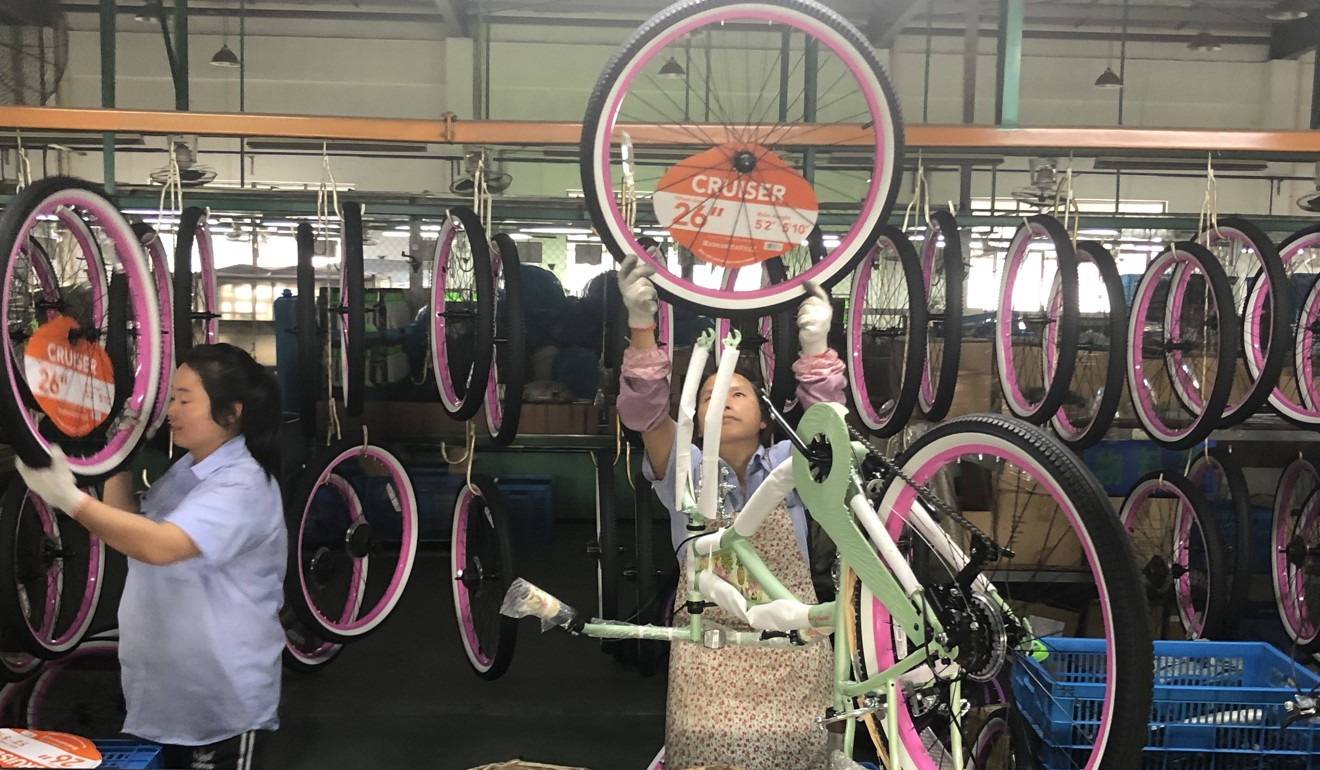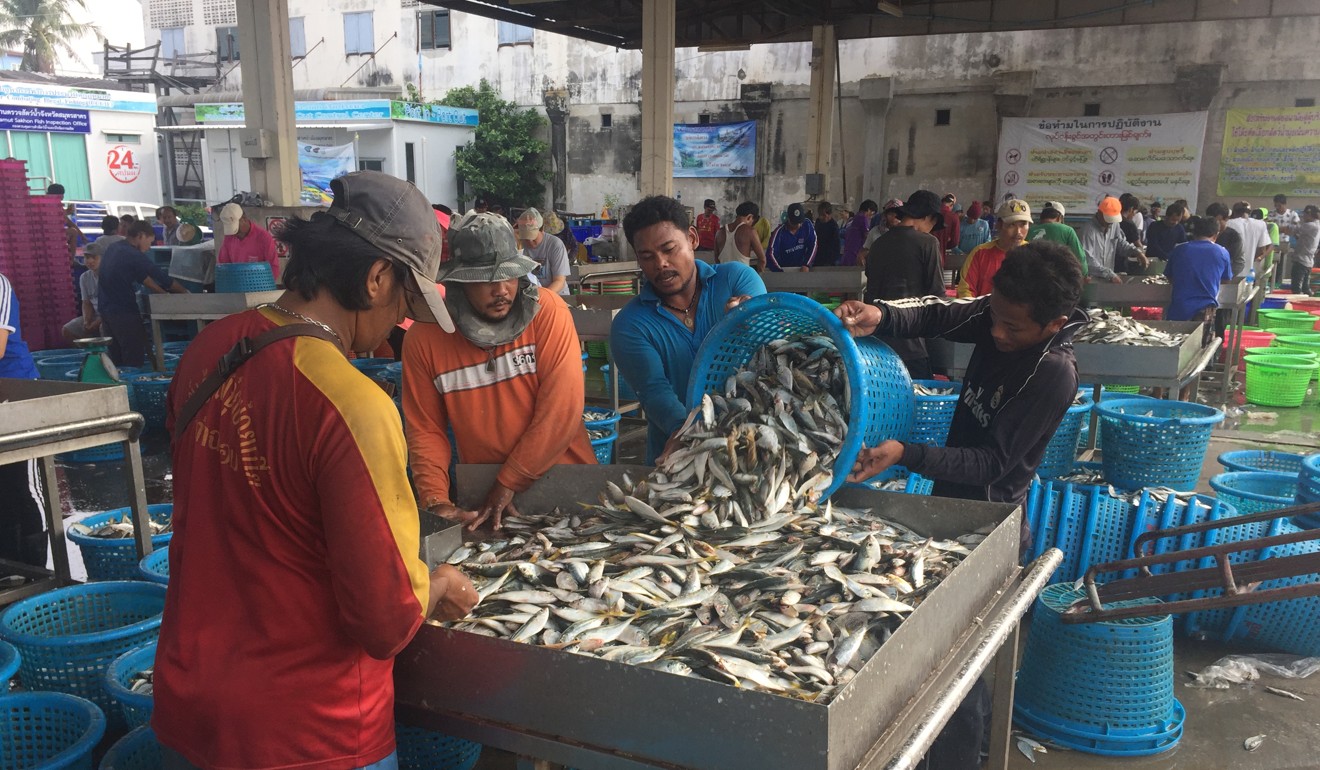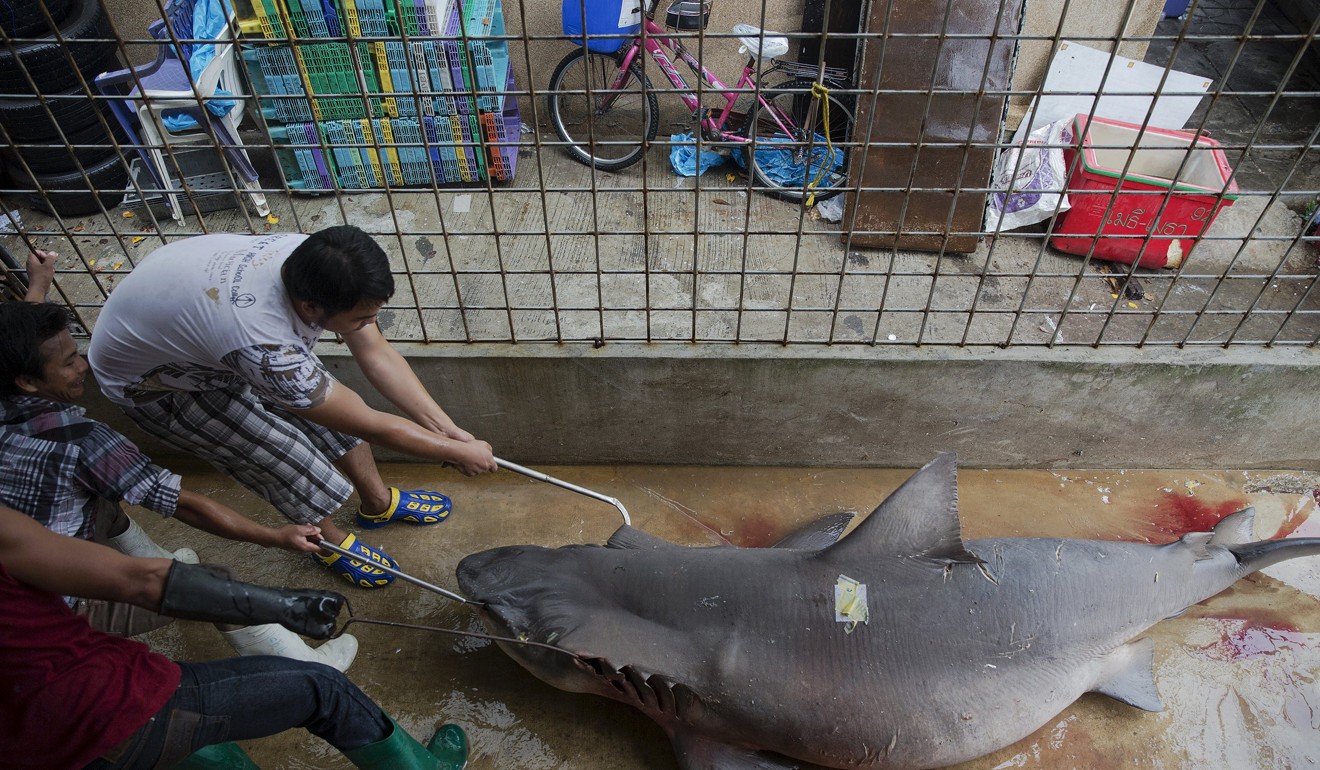
Could Chinese bicycles and fish scupper Thailand-EU free trade deal?
- Such a deal could save the kingdom US$1 billion a year on import tariffs to the European bloc, experts say
- But Chinese bicycle manufacturers relabelling their products ‘Made in Thailand’ and an EU-led crackdown on the Thai fishing industry look to be stumbling blocks

Free trade talks between Thailand and the European Union are set to resume, now that the kingdom’s new cabinet has been installed, but analysts warn that negotiations could be hampered by issues surrounding Chinese exporters using the country as a base to avoid tariffs, and the fisheries sector’s demand for the government to amend its compliance with EU fishing regulations.
Thailand has a lot to gain from a free trade deal, to the point Siwat Luangsomboon, economic analyst at Kasikorn Research Centre, thinks such talks should be a top priority for Prime Minister Prayuth Chan-ocha’s cabinet. “If the deal is signed, Thailand could save US$1 billion a year on import tariffs to the EU, or 4.2 per cent of Thai exports to the EU in 2018,” he said.
“Thailand could be a magnet for a new wave of hi-tech investment, and new markets will be available to products from Thailand such as processed foods, electronics and auto parts.”
The first potential roadblock to any deal is in the bicycle sector. Since the beginning of the year, trade officers at the Thai commerce ministry have been on the trail of mainland manufacturers after being alerted by the EU’s European Anti-Fraud Office to investigate the origins of bikes and e-bikes made by 13 companies registered in mainland China and one from Hong Kong.
The chase proved fruitless. The officers went to the companies’ registered addresses in and around Bangkok but found no one. “Two to three companies were registered to the same address, and the other three or four companies had another address,” said Adul Chotinisakorn, director general of the department of foreign trade who heads the investigation. “We went to the addresses but they were abandoned offices.”

This practice, known as transshipment, sees manufacturers relabel Chinese-made products as “Made in Thailand” in a bid to get around trade restrictions. The Thai authorities and analysts fear it could escalate and see Thai manufacturers of other types of goods, in addition to bikes and electric bikes, hit with EU tariffs.
Tariffs on bicycles imported from China were first imposed by the EU in 1993, and now stand at 48.5 per cent. The measure also extends to bicycles made in Cambodia, the Philippines, Tunisia, Sri Lanka, Indonesia and Pakistan. Early this year, the EU also imposed duties of up to 79.3 per cent on imports of Chinese electric bicycles.
The European bloc’s stance is that production costs for Chinese-made bikes and electric bikes are distorted by state intervention, and any lifting of tariffs would lead to a flood of imports, according to Reuters.
“This is the first time Thailand is being used as a base by Chinese exporters to avoid tariffs,” Siwat said. “Even though the Thai authorities can work to ensure the origins of the goods, [this practice] can make Thai goods less appealing in the export markets, for example, or put the country on the watch list of both the EU and the US.”
Thailand’s free trade talks with the EU began in 2013, but were suspended a year later after the coup that saw a junta led by current Prime Minister Prayuth Chan-ocha take control of the kingdom.
While trade officials in Bangkok and Brussels look for a chance to revive the talks, there are also concerns over the fisheries sector.
The Thai fishing industry recently announced a plan to stage a protest against the government’s compliance with the EU’s regulations against illegal, unreported and unregulated fishing that it says has forced members out of business. The US$6 billion industry was threatened with an EU ban in 2015 over labour abuses on Thai fishing vessels and in seafood factories as well as environmental damage caused by equipment used in large-scale fishing.

In response, the junta implemented new laws covering the traceability of the seafood chain and the requirement for fishing vessels to install monitoring and surveillance systems, resulting in a slump in seafood exports to the EU – from US$760 million in 2014 to US$394 million last year.
The EU withdrew the so-called yellow card in January after the military government led by Prayuth imposed measures including hefty fines and a crackdown on migrant workers in a bid to regulate the industry. His administration counts the withdrawal as one of its biggest accomplishments.
But Thai fishers’ resentment has been boiling over. Kamjorn Mongkoltrilak, president of a local fishers’ association, said the fines imposed on fishing vessels – between 500,000 baht and 3 million baht (US$16,000-US$97,000) depending on the ship size and type of violation – were enough to put some operators out of business.
Even if they wanted to fight the penalties in court, their boats were confiscated by the authorities until the verdict was issued, he said.
“The vessel-monitoring system used to track the fleet requires boats to return to shore if they cannot be tracked for four hours or more. While sometimes it is a technical problem, again we are being punished for it,” Kamjorn said, adding that since a crackdown on migrant workers began, “we have experienced a labour shortage and we really don’t know what we can do”.

Piyachart Phiromswad, economics lecturer at Chulalongkorn University’s Sasin School of Management, said over the course of the free trade negotiations, the EU would have to take into account how the Thai government handled requests from the fisheries sector.
With the EU-Vietnam free trade deal signed last month, he added, a standard had been set for Thailand to comply with similar requirements. “International free trade deals in the current context do not only focus on tariff-related issues, but also on sustainability that includes the country’s policies on environment, labour and intellectual property,” Piyachart said.
He said the sooner the EU-Thailand free trade talks were concluded, the more “Thailand can benefit from the deal”, particularly as other Asean nations including Indonesia, Malaysia and the Philippines were also in talks with the EU, while the EU-Singapore free trade deal was set to come into force later this year.
Last year, total bilateral trade between the EU and Thailand amounted to €38 billion (US$42 billion). Thailand exported goods worth €22.9 billion to the EU last year, with key products including machinery, electronics and transport equipment, and food products.
Last year, the EU imported €394 billion worth of goods from China, €70 billion from Japan and €21 billion from Singapore. Thailand is the EU’s third-largest Asean trading partner after Singapore and Vietnam, which respectively had bilateral trade of €58 billion and €49 billion with the bloc last year. ■